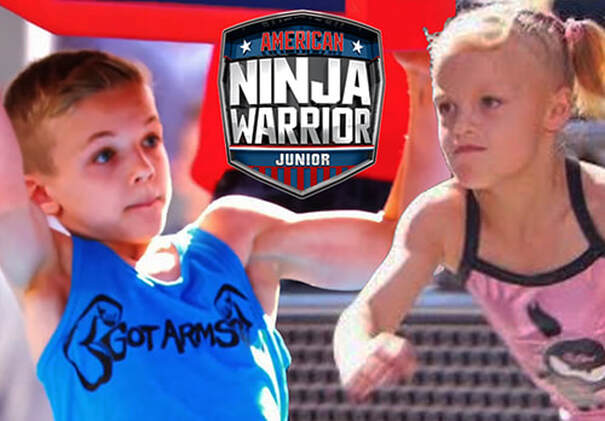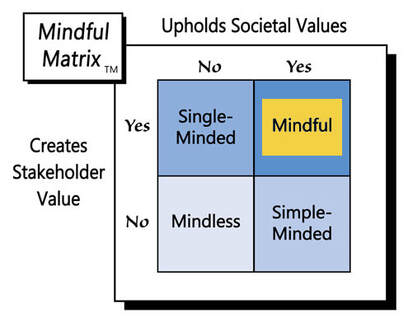It’s been 19 years since CBS’s Survivor kicked off the ‘recent’ reality TV craze, which American Idol and other competition-based programs helped explode. If one considers gameshows, then people first watched competition television in 1938 with Spelling Bee and in 1941 with Truth or Consequences.
It could help at the onset to clarify concepts. Not all “reality TV” involves competition per se, e.g., Keeping up with the Kardashians. Likewise, there’s a broad range of competition TV, some of which is more real/organic, like Deadliest Catch, while other shows are more scripted, e.g., Family Feud.
For many years, adults have been the primary participants in these programs, but more recently that focus has shifted to series showcasing much younger competitors, for instance:
- American Ninja Warrior Junior: Athletes in three age groups (9-10, 11-12, 13-14) race through extreme obstacles for a top prize of $15,000.
- Chopped Junior: Young ‘chefs’ frantically prepare three courses for a panel of judges, with the chance to win $10,000.
- Design Squad: “Contestants design whimsical machines in order to win an Intel college scholarship worth $10,000.”
- Food Network Stars Kid: Children cook against each other with the hope of hosting their own cooking show.
- Project Runway Junior: Clothing designers age 13 - 17 compete for a “full scholarship to the prestigious FIDM in California; a complete home sewing and crafting studio, plus, the dream machine, all courtesy of Brother; a feature in Seventeen Magazine; and a $25,000 cash prize, to help launch their line.”
- So You Think You Can Dance–The Next Generation: Dancers from 8 to 13 years old leap, twirl, and wiggle to win a top prize of $250,000.
- The Voice Kids: Young singers compete for prize money worth over $30,000, as well as a trip to Disneyland Paris.
This list is by no means comprehensive; there are many other kid-focused, competition-based television series, not to mention dozens featuring adult competitors, which begs the question: Are these shows telling children that life is all about winning?
Take even a brief look at plants and animals of the natural world and it’s easy to understand the old adages eat or be eaten and only the strongest survive. Life is competitive. However, we’re human beings. Aren’t we above winning at any cost? Shouldn’t we value cooperation over competition?
In her U.S. News & World Report article “How Toxic Competition Is Ruining Our Kids – and What to Do About It,” Katie Hurley identifies four outcomes of over-the-top competitiveness for children: fractured friendships, stress, burnout, and missing out on part of their childhood.
Kids are naturally wired to want to win. Anyone who’s played games with children, whether it’s checkers or chess, knows that you don’t have to tell them to dislike losing. In fact, many kids, even very young ones, loath defeat so much that they have a hard time dealing with not winning: Some throw tantrums or storm out of the room and sulk.
Is kid-focused competition TV fueling that destructive fire? Are these shows encouraging the next generation to exalt winning above all?
First, it’s important to support that competition is fundamentally a good thing. Yes, all life needs to be competitive to survive, but beyond perpetuating existence, competition teaches things like responding to adversity, avoiding complacency, and valuing hard work. And, when participating in a group, competition also can teach teamwork and communication.
It’s natural to think of competition in connection to sports, but the preceding benefits, as well as others, often accrue to individuals who engage in all types of competition, including academic ones.
The last three years, I’ve had the opportunity to involve teams of marketing students in a regional marketing plan competition. First, there’s a wealth of learning that occurs in the preparation process, getting ready to compete. Second, the knowledge that you’re competing against other schools, encourages everyone to ‘up their game.’ Third, you can learn from your competitors: seeing what they do well and emulating those best practices.
Whether it’s academics or sports, competition also is just plain fun, part of which is undoubtedly from the adrenaline rush—you’re on stage, being tested, while others watch. There’s also the pure ‘love of the game.’
Growing up, my favorite sport was basketball. Although, I enjoyed shooting around by myself, there was nothing like playing a game against others. In fact, besides playing on our high school team, I often arranged pick-up games with my peers. There were plenty of times I didn’t win, and I certainly didn’t like losing, but having the opportunity to play was always more important than the outcome. Win or lose, I could congratulate my opponents, telling them “good game” and suggesting “let’s play again sometime.”
Continuing with sports examples, it’s unlikely that just watching competition, live or on TV, does much to make a person more competitive. For instance, there are plenty of older sports spectators sitting on couches who may be passionate about their favorite teams, but they don’t exhibit any signs of becoming more competitive.
On the other hand, younger people are probably more prone to watch competitions they enjoy and want to participate in them, provided they have the requisite skills. It’s really what happens after joining ‘the game’ that makes a person more or less competitive.
In the same “Toxic Competition” article referenced above, Hurley describes how most often super-competitive kids are products of overzealous parents, pushing their offspring too hard to achieve. Most of us who have been around kids’ sports or similar competitive endeavors can relate: It’s really not the kids who are too competitive; it’s their parents.
I haven’t seen all of the kid-focused competition TV programs listed above, but I have watched some of them. From what I’ve witnessed, the shows model healthy competition, e.g., the children are not placed under inordinate amounts of stress, they are frequently praised for their efforts, and any criticism they receive is constructive. The shows also present positive reactions to the outcomes, highlighting both humble winners and gracious losers.
Like most human behaviors, there are probably many factors that contribute to kids’ competitiveness. It’s unlikely, though, that competition TV causes children to espouse winning at any cost. Rather, most of these programs model healthy competition for kids. As such, the shows also represent “Mindful Marketing.”
Learn more about the Mindful Matrix and Mindful Meter.
Check out Mindful Marketing Ads and Vote your Mind!



 RSS Feed
RSS Feed